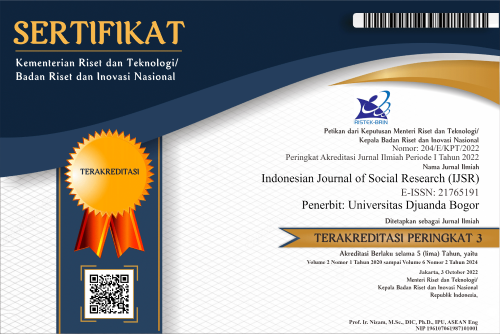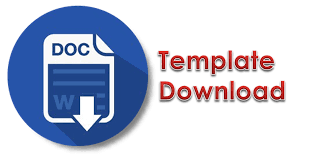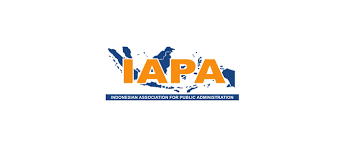The Adoption and Use of Digital Literacy Programs in Selected Tertiary Institutions of Tanzania
Abstract
The purpose of this research is to assess the adoption and use of digital literacy in Tanzanian tertiary institution libraries, focusing on the current state of digital literacy acceptance, the practical implementation, and the obstacles associated with embracing and implementing digital literacy in library settings.The study employed a mixed-method approach, simultaneously using qualitative and quantitative methods. Thus, the primary data were collected through interviews with key informants, including librarians and ICT experts. The quantitative data were gathered through a semi-structured questionnaire. Subsequently, thematic analysis and statistical techniques were employed to analyze the collected data. The findings discovered that a majority had embraced and implemented digital literacy, though numerous challenges were reported. These challenges ranged from technophobia, lack of guidance for digital literacy programs, inadequate power supply, and limitations of internet connectivity. Improving digital literacy in libraries contributes to comprehensive educational development and enhanced access to digital resources to fill knowledge gaps and foster comprehensive social learning
References
Alexander, B., Adams, S., & Cummins, M. (2016). Digital literacy: An NMC Horizon project strategic brief. The New Media Consortium.
Bejaković, P., & Mrnjavac, Ž. (2020). The importance of digital literacy on the labour market. Employee Relations: The International Journal, 42(4), 921–932.
Cordell, R. M. (2013). Information literacy and digital literacy: Competing or complementary? Communications in Information Literacy, 7(2), 14.
Davis, F. D., & Venkatesh, V. (1996). A critical assessment of potential measurement biases in the technology acceptance model: Three experiments. International Journal of Human-Computer Studies, 45(1), 19–45.
Donaldson, C., & Alker, Z. (2019). Digital literacy. Journal of Victorian Culture, 24(3), 329–330.
Emiri, O. T. (2017). Digital literacy skills among librarians in university libraries in the 21st century in Edo and Delta states, Nigeria. International Journal of Library and Information Services (IJLIS), 6(1), 37–52.
Gounder, S. (2012). Chapter 3-Research methodology and research questions. Research Methodology and Research Method, 2012, 84–193.
IFLA. (2017). IFLA Statement on Digital Literacy. https://www.ifla.org/wp-content/uploads/2019/05/assets/faife/statements/ifla_digital_literacy_statement.pdf
IFLA, & UNESCO. (2016). IFLA/UNESCO Manifesto for Digital Libraries. https://www.ifla.org/wp-content/uploads/2019/05/assets/digital-libraries/documents/ifla-unesco-digital-libraries-manifesto.pdf
Kárpáti, A. (2011). Blended Culture: The “virtual” and the “real” in art and education. 27.
Lawal, V. (2017). Information literacy and the future of digital information services at the university of Jos library.
Lwehabura, M. J., & Stilwell, C. (2008). Information literacy in Tanzanian universities: Challenges and potential opportunities. Journal of Librarianship and Information Science, 40(3), 179–191.
Muneja, P. (2010). A reflection of Tanzania libraries in the digital age: Challenges and prospects. A paper presented as a key note address during the annual conference for the Tanzania Library Association (TLA) held in February.
Mungwabi, H. N. (2018). Use of information and communication technologies (ICTs) in learning by undergraduate students at the University of Dar es Salaam library in Tanzania. University of Dar Es Salaam Library Journal, 13(2), 49–64.
Nkebukwa, L. L. (2016). The status of records management at the college of business education.
Pickering, R. (2017). Describing the participants in a study. Age and Ageing, 46(4), 576–581.
Rosenberg, D. (2005). Towards the digital library: Findings of an investigation to establish the current status of university libraries in Africa.
Sasikala, C., & Dhanraju, V. (2010). Assessment of Information Literacy skills among the Science students of Andhra University: A survey. Library Philosophy and Practice (e-Journal).
Urhiewhu, L. O., & Emojorho, D. (2015). Conceptual and Adoption of Technology Acceptance Model in Digital Information Resources Usage by Undergraduates: Implication to Higher Institutions Education in Delta and Edo of Nigeria. Journal of Education and Practice, 6(21), 82–92.
Copyright (c) 2024 Indonesian Journal of Social Research (IJSR)

This work is licensed under a Creative Commons Attribution-ShareAlike 4.0 International License.
The Authors submitting a manuscript do so on the understanding that if accepted for publication, copyright publishing of the article shall be assigned/transferred to Indonesian Journal of Social Research (IJSR) Universitas Djuanda as Publisher of the journal. Upon acceptance of an article, authors will be asked to complete a 'Copyright Transfer Agreement'. An e-mail will be sent to the corresponding author confirming receipt of the manuscript together with a 'Copyright Transfer Agreement' form by online version of this agreement.
Indonesian Journal of Social Research (IJSR) Universitas Djuanda, the Editors and the Editorial Board make every effort to ensure that no wrong or misleading data, opinions or statements be published in the journal. In any way, the contents of the articles and advertisements published in the Indonesian Journal of Social Research (IJSR) Universitas Djuanda are sole and exclusive responsibility of their respective authors and advertisers.
Remember, even though we ask for a transfer of copyright, our journal authors retain (or are granted back) significant scholarly rights as mention before.
The Copyright Transfer Agreement (CTA) Form can be downloaded here: Copyright Transfer Agreement-IJSR 2020
The copyright form should be signed electronically and send to the Editorial Office e-mail below:
Dr. Rasmitadila, M.Pd (Editor-in-Chief)
Universitas Djuanda
Jl. Tol Jagorawi No.1, Ciawi, Kec. Ciawi, Bogor, Jawa Barat 16720
Website: http://journal.unida.ac.id/index.php/IJSR/index
Email: ijsr@unida.ac.id





4.png)



